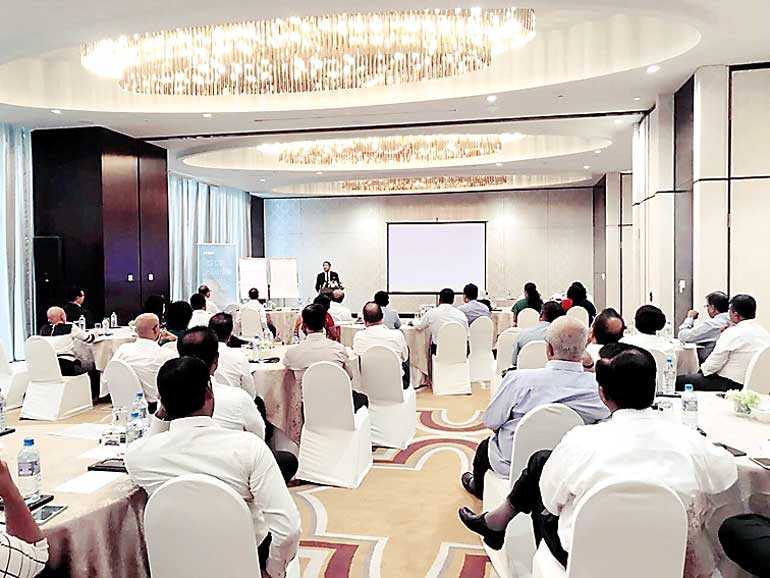Sunday Feb 15, 2026
Sunday Feb 15, 2026
Monday, 5 November 2018 00:00 - - {{hitsCtrl.values.hits}}


The KPMG forum on Strategic Overview of Tax Dispute Resolution held on 25 October at the Movenpick Hotel witnessed many intriguing facts on the Tax Appellate Procedure being unravelled. One such issue discussed in detail at the event was whether the Tax Appeals Commission Act No. 23 of 2011 remains active further to the provisions relevant to the Tax Appeals Commission being introduced in the Inland Revenue Act No. 24 of 2017 (IRA).
Dr. Kanag Isvaran P.C. presenting his paper on the tax appellate procedure referred to the concept of Administrative review introduced under the new Inland Revenue Act and mentioned that a ‘review’ is a tool that is used by an aggrieved party to request a court of law to take a second look at its decision or verdict. Dr. Kanag Isvaran P.C. stressed that a review is a request to look at the ‘legality’ of the ruling. He further stated, “A review is mostly concerned with the ‘correctness of the legal matters’ of a decision. Section 137 (b) of the IRA says the “amount and particulars of assessment” made by the Commissioner General of Inland Revenue (CGIR), is correct! Is it factual or legal? An Appeal on the other hand is mostly concerned with the ‘correctness of the decision itself’ – either to change or modify- it may involve questions of fact as well as questions of fact and law or only questions of law.”
He further emphasised that Section 140(2) of the IRA 2017 states that ‘before an appeal may be made to the Tax Appeals Commission (TAC)’, a request for an administrative review should have been made to the CGIR under Section 139 of the IRA and either a decision was received from the CGIR or 90 days (3months) have lapsed since such request was made. So it seems, if no decision has been made by the CGIR within the 90 day period, the taxpayer has to await the 90 days before appealing to TAC. However, under section 140(5), a notice of appeal shall be given in writing to the TAC ‘within 30 days of the CGIR’S decision under Section 139’.KPMG Sri Lanka Principal Tax and Regulatory Suresh Perera in his presentation emphasised that Sections 140 (4) deal with the powers of the TAC and it states that the TAC can require the taxpayer to furnish security for the payment of tax, if the TAC is satisfied that the tax may not be recoverable. However, in the Tax Appeals Commission Act No. 23 of 2011, a bank guarantee or deposit has to be furnished by the tax payer either via a refundable 25% of the sum assessed by the CGIR or a non-refundable 10% of the sum assessed by the CGIR at the time of lodging the Petition of Appeal. Therefore he raised a point in relation to the interpretation of these two statutes.
KPMG Sri Lanka Associate Director – Tax and Regulatory Rifka Ziyard set out her views that the new Inland Revenue Act refers to the words ‘objection’ and ‘appeal’ in a different context when compared to the past. She explained the Tax Appeals Commission process currently followed and that the appeals are to be heard within 270 days from the first date of hearing. The new Inland Revenue Act provisions in relation to the TAC hearing specifies no Time bar period.
The audience took part in an interactive question and answer session during which queries in relation to directors’ responsibilities and liabilities, powers of the CGIR in relation to administrative review, writ applications pertaining to taxes, and the procedures for obtaining private rulings were discussed extensively.